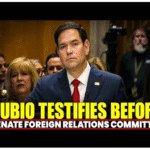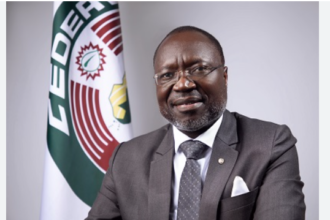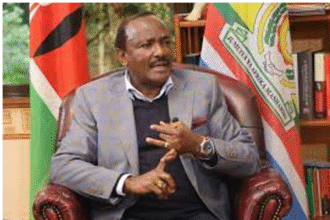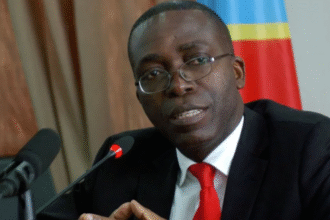By Patrice Katuma
Dar es Salaam, Tanzania – Tanzanian President Samia Suluhu Hassan has defended her government’s recent decision to detain and deport several Kenyan observers who had traveled to Tanzania to monitor the ongoing trial of opposition leader Tundu Lissu. Addressing the controversy, President Suluhu warned against foreign interference in Tanzania’s internal affairs, asserting that the country would not tolerate any attempts to disrupt its peace and stability.
Her comments follow the detention of prominent Kenyan legal figures, including senior counsel Martha Karua, former Chief Justice Willy Mutunga, and human rights defenders Hanifa Adan and Hussein Khalid, all of whom were denied entry into Tanzania upon arrival at Julius Nyerere International Airport. These actions sparked outrage among Kenyan legal and human rights circles, prompting calls for an explanation from the Tanzanian government.
President Suluhu, however, squarely defended her government’s actions, expressing concern over a perceived trend of activists from neighboring countries attempting to incite unrest in Tanzania. She asserted that some of these individuals have already contributed to instability in their own nations and should not be allowed to “ruin things” for Tanzania, which she described as a haven of peace and stability.
“We have started seeing a trend where activists from our region are beginning to invade and interfere in our affairs,” President Suluhu stated. “Now, if they’ve already been dealt with in their own countries, they should not come here to ruin things for us… Let’s not give them room—they’ve already caused chaos at home. This is the one country left that hasn’t been destabilized. It is here that people enjoy safety, peace, and stability.”
The president’s remarks came shortly after former Kenyan Chief Justice David Maraga was permitted entry into Tanzania and attended Lissu’s court hearing, a stark contrast to the treatment of his other Kenyan counterparts. While not explicitly addressing the discrepancies, President Suluhu maintained that her actions were not biased, but rather a fulfilment of her constitutional duty to protect Tanzania’s sovereignty and stability.
“There have been several attempts, and I urge our security agents and policy enforcers not to allow unruly individuals from other countries to come and cause disorder here. No,” she emphasized. “I’ve seen many clips accusing me of being biased, but I am acting to protect my country—and that is the responsibility I was given. We will not allow anyone to come and destabilase our country.”
The detentions and President Suluhu’s subsequent comments are likely to further strain relations between Tanzania and Kenya, particularly within activist and legal advocacy communities. The incident raises concerns about the balance between national security and the right to observe legal proceedings, particularly in cases with significant political implications. The ongoing trial of Tundu Lissu, a prominent opposition figure, is being closely watched both regionally and internationally.









